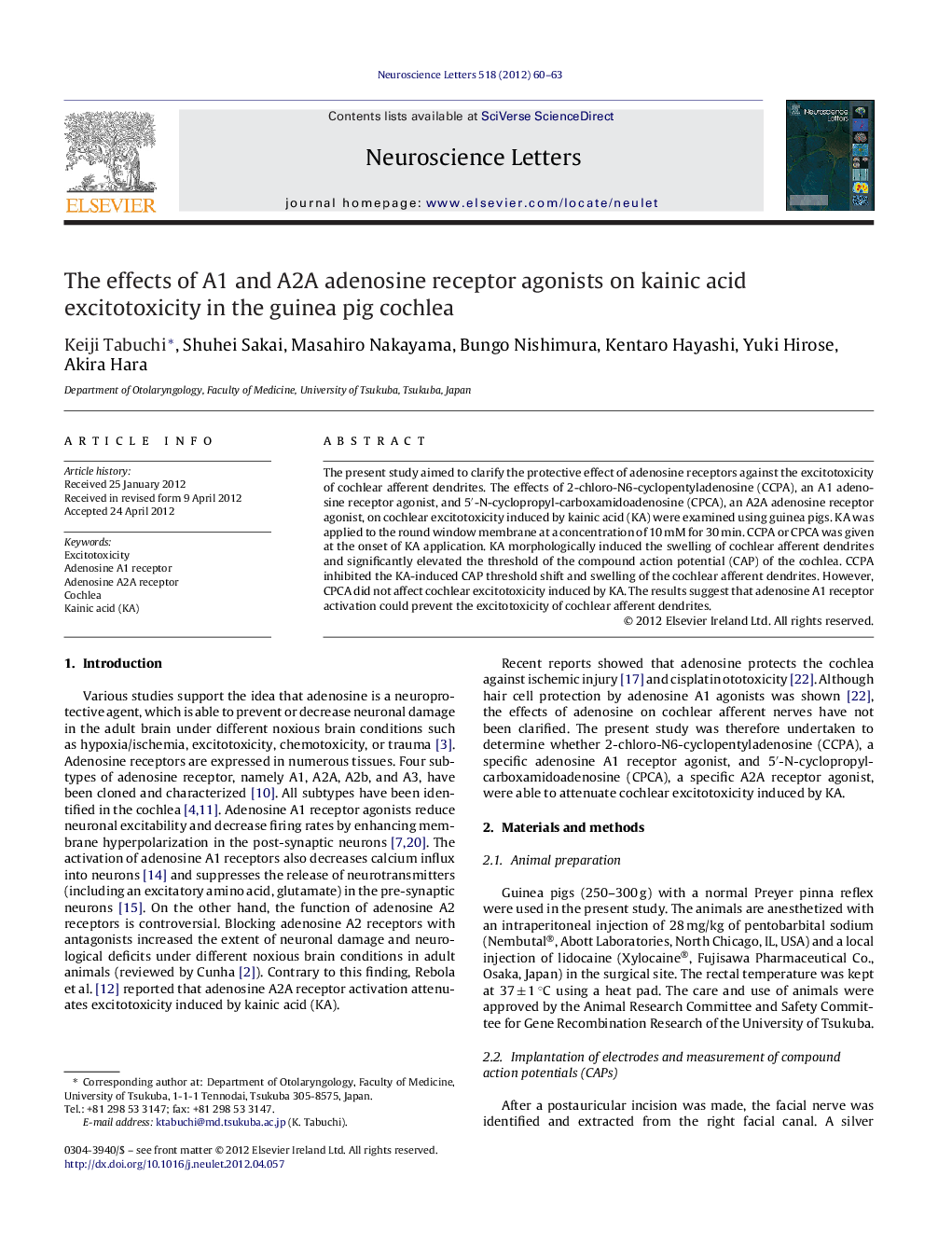| Article ID | Journal | Published Year | Pages | File Type |
|---|---|---|---|---|
| 6284009 | Neuroscience Letters | 2012 | 4 Pages |
The present study aimed to clarify the protective effect of adenosine receptors against the excitotoxicity of cochlear afferent dendrites. The effects of 2-chloro-N6-cyclopentyladenosine (CCPA), an A1 adenosine receptor agonist, and 5â²-N-cyclopropyl-carboxamidoadenosine (CPCA), an A2A adenosine receptor agonist, on cochlear excitotoxicity induced by kainic acid (KA) were examined using guinea pigs. KA was applied to the round window membrane at a concentration of 10Â mM for 30Â min. CCPA or CPCA was given at the onset of KA application. KA morphologically induced the swelling of cochlear afferent dendrites and significantly elevated the threshold of the compound action potential (CAP) of the cochlea. CCPA inhibited the KA-induced CAP threshold shift and swelling of the cochlear afferent dendrites. However, CPCA did not affect cochlear excitotoxicity induced by KA. The results suggest that adenosine A1 receptor activation could prevent the excitotoxicity of cochlear afferent dendrites.
⺠The effects of adenosine receptor agonists on cochlear excitotoxicity were examined. ⺠Adenosine A1 but not A2 receptor agonist protected the afferent dendrite against kainic acid. ⺠The present finding suggests that adenosine A1 receptor agonists may be candidates for cochlear protection.
